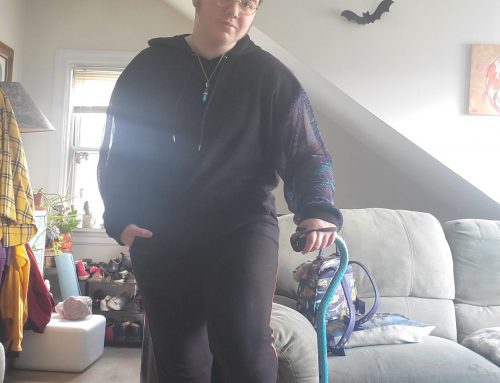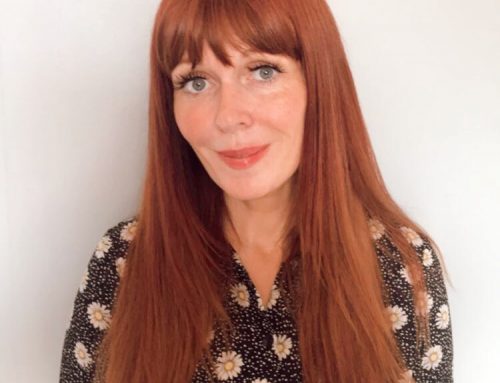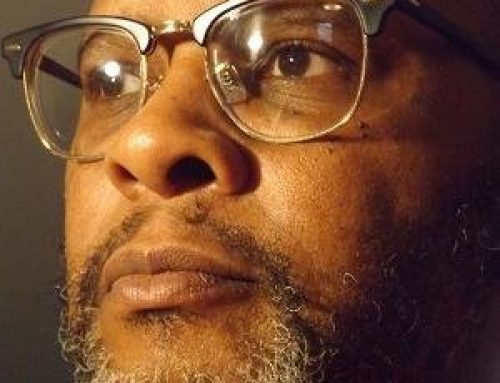WHY DO MENTAL ILLNESS AND ADDICTION SEEM TO SO OFTEN GO TOGETHER?
_______________________________________________________
The day I asked myself how I had travelled so deeply into my depression—when all I wanted was to get out—I wore an anti-suicide smock and cried in a basement jail cell in Williston, North Dakota.
I write that I travelled to that place, because depression is a journey. But it’s not like other expeditions you make purely for the sake of a trip to someplace new with your family. Depression feels like you’re on a treadmill, and every footfall takes effort. The wheels keep turning on the exercise machine below you and the belt keeps spinning away. A person suffering from clinical depression only takes the next step because life keeps on moving. You feel compelled to keep up, but there is no joy in it.
Before I was arrested, I hated the meds I got. They seemed to give an artificial edge and they turned off my sex drive. So I did what many also choose to do: I self-medicated.
Opiates were what I wanted. They gave me the feeling I remembered from my childhood when my mother took a freshly cleaned blanket from the dryer and placed it around my body. Warm. Safe. Complete.
But I couldn’t always get what I wanted. So I turned to alcohol, benzos, pot. Anything really.
I only managed to get worse, sinking ever deeper into my pit, still trying to keep up with the incessant treadmill of time, of life. I kept drinking and drugging; I needed to catch up. I needed to feel normal again.
Eventually, I was arrested—first for a DUI when my pickup veered off the road at 2 am, then for felony trespassing. The second arrest I had evidently decided (several times) in a blackout that it would be a good idea to wander around the countryside and sneak into people’s homes, apparently because I thought I could find other people’s prescription drugs and take them.
And I did all this as an ordained pastor in the ELCA (Progressive Lutheran Church).
I was good at what I did and I thought I liked my job. I genuinely cared about people and could preach a good message. However, I didn’t take care of myself. More accurately, I chose to self-medicate with “medicine” that only brought about a more magnified depression.
Why did I keeping doing this to myself? Why do others who suffer from other forms of mental illness also choose to do it?
______________________
Current research suggests that up to 5.2 million adults with a diagnosis of mental illness may also be dealing with substance-use disorder. Of this number, only half will receive treatment for substance misuse or professional care for their mental health.
Mental illness and substance abuse seem to go hand in hand, like honey and jam on toast or yams.
To add insult to injury, the misuse of both licit and illicit substances often manage to only get people into the criminal justice system, which in many cases is broken. People with schizophrenia, especially, find that they not only don’t get the care they deserve, but also that their worst fears are realized in prison!
I was one of the lucky ones. When I was arrested I happened to have decent health insurance. I not only got the treatment I needed to deal with the addictions, but also connected with very knowledgeable doctors who treated my depression concurrently.
The reasons why I gravitated toward drugs and alcohol are complex. The simplest explanation is that while I used, the drugs worked! This is something that other people never understand. They just can’t get why I would keep doing something that was so obviously harmful to me. They don’t comprehend that one or two hours OFF the never-ending treadmill was worth it to me . . . even if it meant misery was sure to come afterwards.
People with other disorders use for different reasons: some use to deaden the past trauma they experienced; others use for magnification of the feeling they want to obtain. There are additional scientific reasons behind this as well—overlapping genetic vulnerabilities being one of them.
______________________
Like I mentioned, I was fortunate. I got the care I needed and deserved. I can’t tell you how many others I’ve reached out to and talked with who said that it wasn’t that way for them. More than I can count on two hands.
For them, the cycle continues. One man I’ll call Steve contacted me to be his AA sponsor. Steve had a classic case of depression, and his disease was reinforced with an inability to act. The frustration working with him was such that I knew that he needed real medical care beyond the fellowship that the program had to offer.
His options were limited though. In my home state of Minnesota, there are places where he could have gone to get the help he needed, but it required an effort from his part too. When you have depression, effort is a rare quantity.
One day I left a message on his cell phone and told him I wanted to meet with him again to see what we could do to get him some medication to address his depression. He didn’t return my call. I called again. And again.
I drove over to the sober house where he was living only to find out that he had been kicked out. The guy didn’t have two nickels to rub together and I thought he couldn’t have gone far. I drove around downtown, to see if he set up shop in a shelter I knew he had been to before I met him. No info.
I called a relative living in northern Minnesota. She told me she hadn’t heard from him. I finally gave up and tried put him out of my mind.
Two months later, the relative I had called earlier messaged me that Steve had been found dead. Authorities think that he fell down after a seizure — possibly from alcohol withdrawal. Steve cracked his head on the pavement and bled out.
Steve deserved better than that and we deserve better than we often get. My view is that the stigma surrounding both mental illness, and the chemically induced variety that so often accompanies the other, have structured health-care to view the issue as a problem of that person’s own making.
______________________
Today I live in hope. It begins with sharing our stories, standing tall, and not claiming shame from what we have and own. Our stories are not yet finished and others need to hear that transformation is possible. Advocacy is key.
I have transformed my life on account of the care I’ve received. Today, I’m a freelance writer with two books to my name and I have made it my life’s goal to share my story, as well as others’ stories of change. I’m a father, a husband, and a friend. I still struggle, but I know I never need to return to the place I went to if I continue to reach out in gratitude.
 Daniel D. Maurer is a freelance writer and journalist. His books are Sobriety: A Graphic Novel (Hazelden Publishing, 2014) and Faraway: A Suburban Boy’s Story as a Victim of Sex Trafficking (Two Harbors Press, 2015). He’s currently working on a third book dealing with the psychological concept of resiliency. He keeps the website Transformation-is-Real sharing the power of personal change. He lives with his family in Saint Paul, Minnesota.
Daniel D. Maurer is a freelance writer and journalist. His books are Sobriety: A Graphic Novel (Hazelden Publishing, 2014) and Faraway: A Suburban Boy’s Story as a Victim of Sex Trafficking (Two Harbors Press, 2015). He’s currently working on a third book dealing with the psychological concept of resiliency. He keeps the website Transformation-is-Real sharing the power of personal change. He lives with his family in Saint Paul, Minnesota.
Daniel can be found on Twitter.
If you enjoyed this post, please take a few moments to leave a comment, or share with your friends using the share buttons below.








Thank you for sharing your story. It was truly inspiring. I too have suffered from depression and known all too well about self medicating with things that just aren’t medicine. Society doesn’t understand the link. They do not get that like you said drugs fill a void or help erase the past but that isn’t how people suffering from mental illness should be getting help. Like you mentioned more people need access to better health care, resources, doctors and support. Most of all what this society needs is awareness and by sharing your story you are doing just that so thank you for you bravery and honesty in sharing this piece. I am also a mental health blogger follow me at LivLovesYolandi !
Nice to read your comment. I appreciate reading it. I’ll look up your blog. Peace!